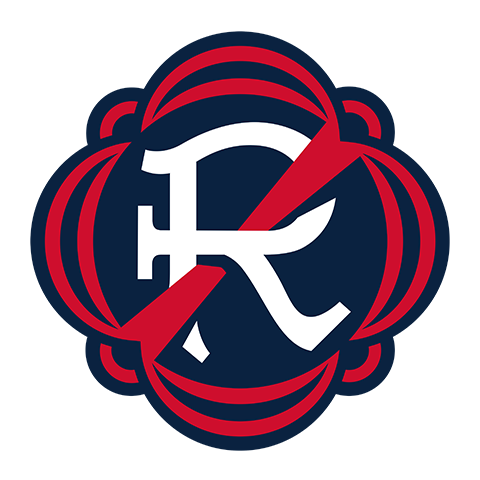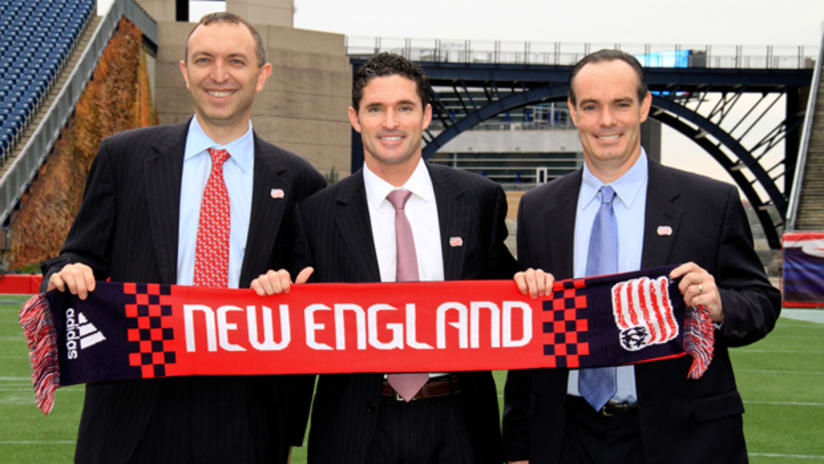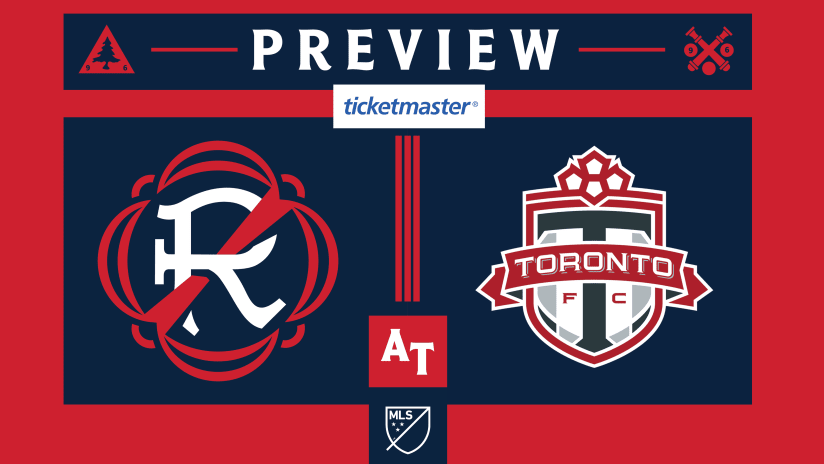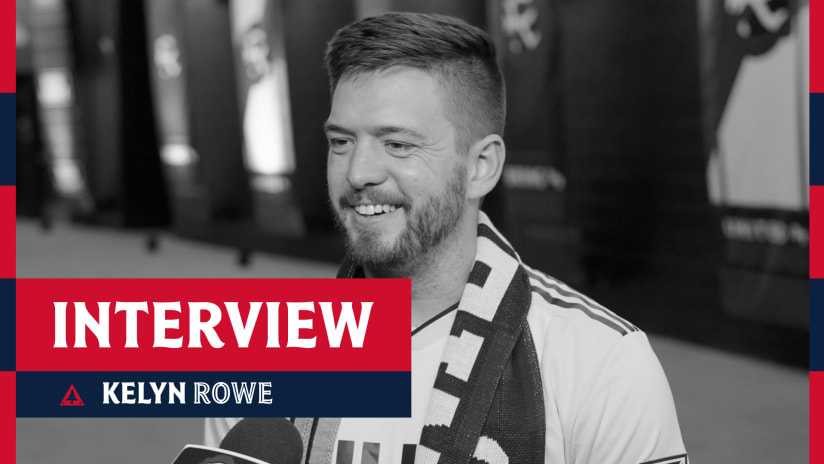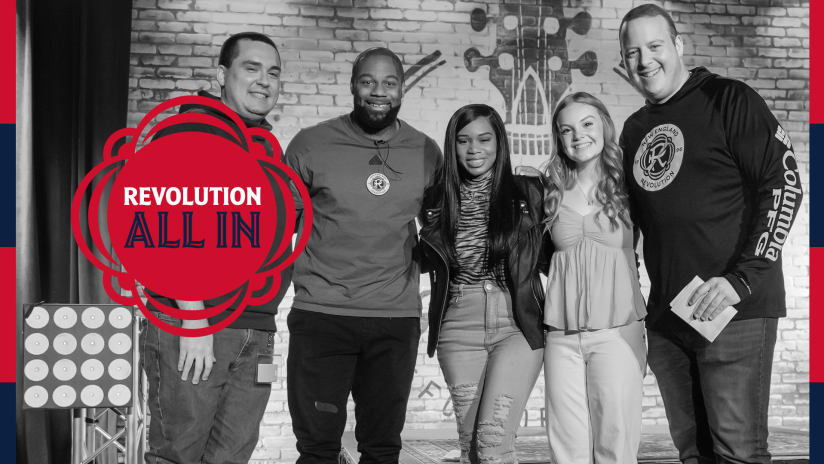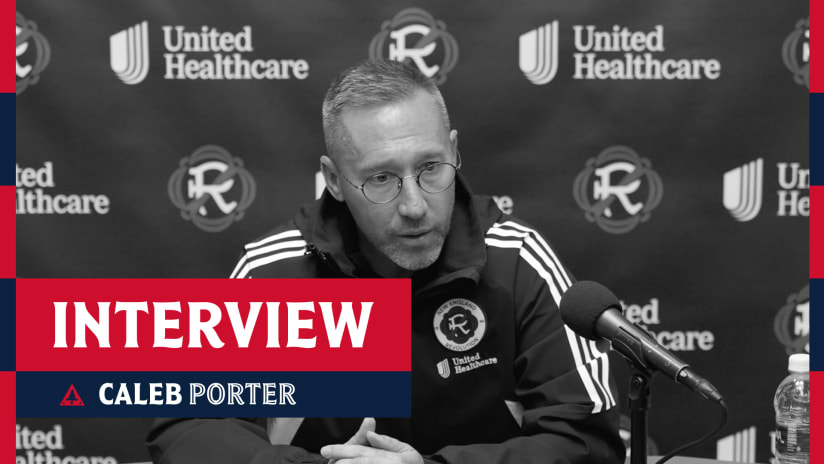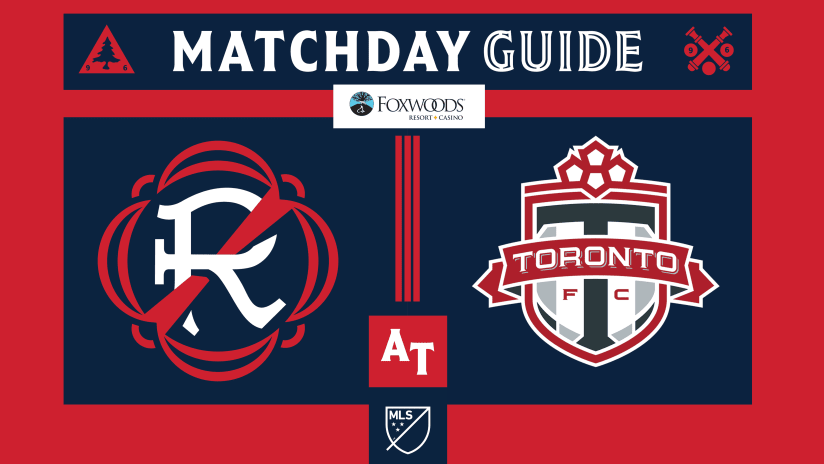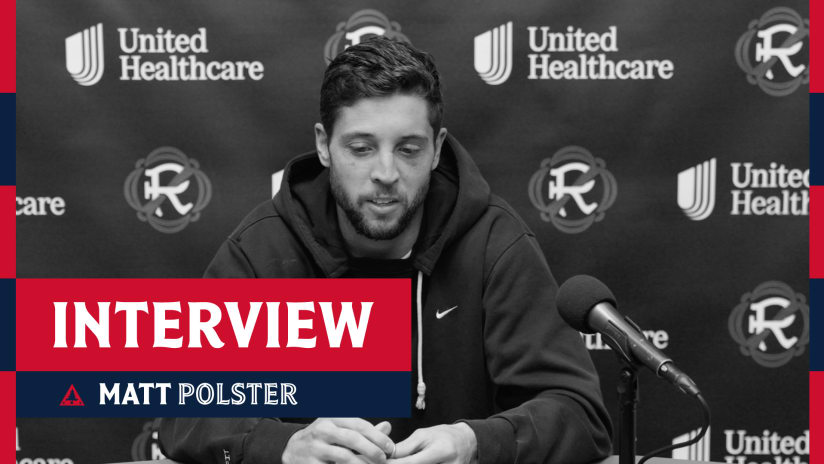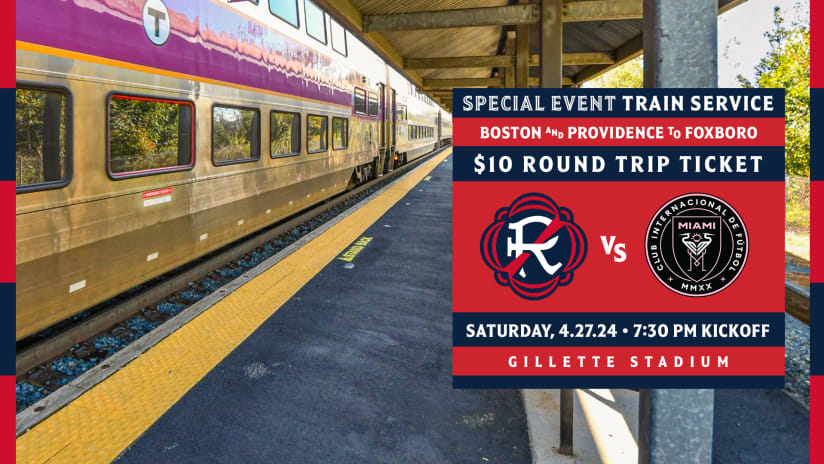New England Revolution president Brian Bilello
I wanted to thank everyone for coming down today.
When Michael and I were putting our list together, we knew that Jay was going to be one of the candidates for the head coaching job here in New England. We were confident that Jay had the makeup to be a great coach, but we were unsure if he was ready to step in right away and take that role on.
In our discussions with Jay, it became clear to us that Jay was ready to step in immediately and take the role. As we further had conversations with Jay and understood his vision and his plan for this team, it became clear to us that not only was he ready, but that Jay was our top choice for the position.
There are many great qualities that Jay possesses that led us to that decision. He is a tremendous leader and motivator. He has a great amount of knowledge about the game and the players not only on our team, but across the entire league. He has a keen knowledge of what we need to do, the activities we need to excel at to make this team great once again. Whether it be scouting, player development, training, strength and conditioning or match preparation. Most impressive to us was Jay’s ability to be a dynamic thinker. About how to address the issues that we need to improve. His willingness and ability to explore new ways of making this team better, I think will not only serve us well today, but into the future as well.
It is my great pleasure to formally introduce to all of you the new head coach of the Revolution, Jay Heaps.
New England Revolution head coach Jay Heaps
Well thank you, Brian. I am so excited for this opportunity and I want to start – I want to thank Mr. Kraft, Jon Kraft and the entire Kraft family for believing in me. Mike, and to Brian, for also believing that I’ll be the right leader for this position, to deliver a new culture but also implement a new vision and an exciting vision.
Now, if I sat here and said that I was honored to take this job, that would be a complete understatement. I think it’s pretty clear that I grew up in this area, I was born and raised in this area, so I think my heart has always been with this organization. There hasn’t been a time on the field as a player for nine years here where I didn’t want to win for this family or win for this organization. To me – that meant everything to me.
But over the last two years, as a professional analyst for this team, you start thinking a little differently. I think you start thinking about how to make this team win. I think as a player, I had a role – it was to be a passionate, fiery leader. But when you take a step away from that and you’re in an analyst role and you’re looking at it a little differently, you start seeing where those holes are. But there hasn’t been a moment that hasn’t gone by where I believed that I have the right strengths and the right qualities to lead this team.
I think that it’s quite obvious when I walked in to talk to Mike and when I walked in to talk to Brian, I don’t have head coaching MLS experience. It’s quite simple. And I’m not going to shy away from that. But what I do bring to the table and what I know I have are the intangibles, those thing that make a head coach great.
First, when I think about that, I think of three things about what a coach needs to be at this level. And one of them is a great leader. A leader that has been tested. A leader that, in a time of water coming over the bow, guys look to him and wanted to be led by that person. That is something that you can’t fake. It’s something that comes from within. And you can’t turn it on.
Number two is unwavering integrity. I think that’s how you really see someone. If they say what they mean and mean what they say. And that’s been something as a player and as a person – the way I live my life. I think that’s another thing you can’t turn on.
Lastly, I think it’s about communication. … I think everyone can tell you that they know me, they know I’m passionate and I’m determined. I’m willing to work hard. Those are just part of who I am. That’s not something that I think I’ll turn off, or bring or not bring – that’s guaranteed. That’s all good and fine, but if you can’t take that and communicate to the team – if you can’t communicate your vision or where you see this team going, well then that’s where you lose out.
And I’m not going to sit here and say that I don’t think experience isn’t vital as well. I think good leaders can look in the mirror and say, ‘Here’s my strengths, here’s my weaknesses.’ Great leaders step in and say, ‘This is my strength, this is my weakness, now I’ll surround myself with great people to now compliment those weaknesses or strengthen my strengths. That’s what I’m going to do here. I don’t want to hide behind saying experience isn’t valuable. It is.
I think now were’ going to, quite frankly, open it up because I think I want to hear where you guys are coming from. But I’m super excited for this opportunity and again, thank you guys for that opportunity.
What went wrong during the 2011 season?
Heaps: I think, when I just spoke there, we were talking about a culture. We were talking about accountability. Those things are absolutely vital to where our team needs to go. And I think tactically, you can sit there and say, well, is there a hole here, is there a hole there? Maybe somewhere on the field, things are good. I think that overall, our collective team was taken down by a few holes.
I think that Brian was mentioning what kind of vision I have for the team. I’m a big believer that you have to build upon a nucleus of players. You have to – with this team here,now – there’s a strong core. We need more from that core, but we’re going to add to this core and we’re going to go forward and bring in players that strengthen that core. And then from a locker room perspective, have to have good character in there. Fundamentally, there’s a few things that need to change right off the bat and one of them is game preparation. I think that’s something that I bring to the table immediately, day one.
What we do as a team throughout the week we’re going to look at ourselves internally and we’re going to see what we’ve done wrong the past week and how we can changes that. And then we’re going to implement the game plan and see what advantages we can take from video and impose our will on other teams.
And then next, I think Brian touched on it as well, strength and conditioning. That is something that I prided myself on as a player – that you have to be able to play as much as you can. You have to be called upon – if I need to check on a number and you’re always injured, I want to make sure we’re remedying that and making sure that those things are taken care of. So that’s huge. Those are things that I want to make that we will not be outworked and we will not be outsmarted.
Lastly, and kind of in that vision, from a tactical standpoint – I think what gets lost and maybe it was my fault. I was a fiery player and I was a defender and I think that was my role to go out there and motivate and kind of lead from that fiery passionate position. But my whole life, I was an attacking player – that was how I played the game. So tactically, I want to have talented attack-minded players that have a vision for getting forward, for having the ability to – if you’re in the back – I want you to help out the attack. I don’t want you to sit back and play too conservative, I want to make sure that we have the mindset that we’re going to go forward and we’re going to attack.
You mentioned three things that it takes to make a great, coach – did you learn those from your former coaches?
Heaps: I think that that is one thing that I’ve been very blessed with, was that I could learn from people. It started in college, obviously I had a great soccer coach in John Rennie and great basketball coach in Coach K. So right off the bat, you’re observing how they work, what they’re thinking and I always kind of a cerebral player, in that I didn’t just say, ‘Let me run through that wall.’ I would say ‘Alright, how do we get around that wall? Maybe it means running through it, maybe it means running around it, let’s think about it.’ But then in this league, I’ve had unbelievable coaches and I’ll start with coach Nicol. He is an amazing coach. And he really taught me how to win and how to believe that when players are asking you step up, you can step up. And I’ve also been very lucky to have Ivo Wortmann as my first coach in Miami, and he’s a Brazilian coach – very tactical and what I learned from him was how the Brazilians like to attack from the outside positions. I came in as a forward, and he said, ‘Look, I love the fact that you attack, but I want you to do it from the right side and I want you to get forward every time you can.’ Then there was Ray Hudson – Rockin’ Ray Hudson. English style, very direct. I learned quite a bit from him. And then right before Stevie Nicol took over, Fernando Clavijo. Where he came in, he was a very passionate guy. He was a players’ coach in the sense that a lot of the players loved the way he was. And so you can put that across the way and kind of see where it goes, but no question where I am today, I have taken a lot from what I’ve learned.
Was your hire a risk?
Heaps: I think that with risk comes reward. And I think that – as I was mentioning before – what I may lack in MLS experience, I think some of the intangibles I have completely make up for that. I don’t think it’s a risk because I know what I’m going to bring to the table. I think that if I’m sitting where you are, yeah, I could absolutely say it’s a risk. But I know what I bring every day. I know what kind of people I’m going to get around me to help succeed. That, to me, is so important.
Bilello: I’ll just add to that. We were talking through the search’s early stages. And the one thing that we were all on the same page about was that we were all looking for a great coach for the New England Revolution. And I didn’t think we wanted to go out there and grab someone who had proven himself or that we knew was going to be a decent coach. And in talking with the candidates, and especially in talking with Jay, it became clear to us that he has what it takes to be a great coach. And that was one of the key decision factors for us on bringing Jay onboard. So I think from an organizational perspective, going with someone that we were confident 100% could be a decent coach versus someone who we thought had the makeup to be a great coach – we wanted to go and be great.
What made you want to put Jay on your initial list for the coaching search?
General manager Michael Burns: We compiled a list, Jay was certainly on it. He was pretty much on our short list from the get go. And for all of the reasons that you said – knowing him as a player, knowing him as a person. And I was thinking driving here this morning, the last time we were here, Jay was announcing his retirement and that was two years ago and one of the things I said then and it still sticks with me is, I don’t feel Jay knows any way other than to be successful. Whether that’s as a player, whether it’s as a person, as a family man. I said it then and I believe it now and I have no doubt in my mind that he’s going to be a successful coach.
What do you have to do to make Jay successful?
Burns: We have to give him what he needs. One of the things I really respected about Jay when we interviewed him was his candor in terms of okay, he realized his strengths, he also analyzed what some may perceive as the shortcomings. He said to me, “listen: for my inexperience I want to bring in a very experienced assistant coach.” For him to recognize that and to say it and think beyond just himself, that spoke volumes for me and so he’s looking at the big picture not just from a player standpoint , from a standpoint, but also from a staffing standpoint. That stuck with me. He’s looking well beyond just himself.
On the decision making process …
Jay Heaps: I don’t think there was a choice. When I retired and when I went in to Morgan Stanley I thought it was –and I’m not going to shy away – I think that experience in itself is something I can lean on. I was trained in New York City by Morgan Stanley. I was accepted into a program. When I retired, I leapt at it, knowing I was going to have an opportunity. I never left the game. As a professional analyst for this team, I never left the game. I was always thinking about the team, how to get back into the league and just working my way around. This summer came along – and quite frankly I’m probably saying more than I should – I had the opportunity to lock on at Morgan Stanley and I said I really want to start pursuing an opportunity in Major League Soccer and get back in to following my passion. So no question, [the experience at Morgan Stanley] it’s something that I’m going to lean on, but I don’t think it was a choice.
On challenges he expects to face as a first-year coach …
Jay Heaps: That’s a great question, and I think that one of the things I know going in, I have to rely on my ability to think – I have to think on my feet. But some of the challenges: I want to make sure I’m bringing in the right players. Like I mentioned, there’s a nucleus of players, there’s a core group of players, but now we have to add to that. We have to make sure this team knows that we’re not thinking three-four years (down the road), we’re thinking now. We’re thinking how do we add the right players and the right chemistry to build this team from day one. That’s the challenge. That’s what I’m excited about. I think as an analyst it’s easier to pick the holes, but now as a coach you have to fill those holes.
